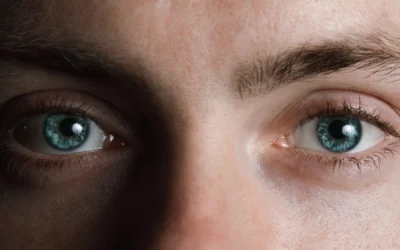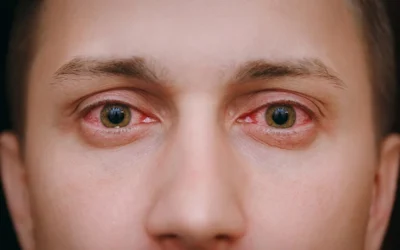If your child has myopia and their glasses prescription seems to change every year, you might be wondering if there’s more you can do. Myopia management in Council Bluffs or Omaha could be the next step. It focuses on protecting your child’s vision as they grow, not just correcting their eyesight.
What is myopia?
Myopia, also known as nearsightedness, makes it hard to see distant objects clearly. As your child grows, their eyes naturally grow too. But in children with myopia, the eye grows too long from front to back. That changes the way light focuses inside the eye and leads to blurry distance vision. The longer the eye becomes, the higher the level of myopia.
Why myopia is becoming more common
Myopia is becoming increasingly common among children, both in the United States and worldwide. If current trends continue, experts at the World Health Organization estimate that nearly half of the global population will have myopia by 2050.
This rise in myopia has been linked to increased screen time, reduced outdoor activity, and more time spent on close-up tasks like reading or using digital devices. Genetics also plays a role in myopia development. Children with one or both parents who have myopia are more likely to develop it themselves.
Does myopia stop progressing?
Myopia typically begins in childhood after the age of 4 and progresses steadily through the school-age years and into the teenage years. This progression happens because the eye continues to grow, especially during growth spurts. While some children experience a slow and mild progression, others may see their vision worsen more quickly—this is known as progressive myopia.
For many children, myopia tends to stabilize in their late teens or early twenties. However, without proper management, the degree of nearsightedness can increase significantly before that point.
The risks of high myopia
Even if it seems like a mild case now, untreated myopia can become more serious over time. That progression can lead to high myopia, a more advanced form of nearsightedness.
High myopia doesn’t just mean thicker glasses. It also comes with a higher risk of serious, sight-threatening eye conditions later in life, including:
- Retinal detachment, where the retina pulls away from the back of the eye
- Glaucoma, a condition that damages the optic nerve and can lead to permanent vision loss
- Myopic macular degeneration, which affects the central part of vision and can severely impact daily activities like reading or driving
Through proactive treatments like myopia management, we can help slow this progression and reduce the risk of future complications.
What is myopia management?
Myopia management is a science-backed way to slow the progression of nearsightedness in children. Instead of just treating the symptoms with regular glasses or contact lenses, it focuses on slowing eye elongation to help protect long-term vision. The goal is to keep your child’s vision from getting worse too quickly and to lower the risk of more serious eye problems down the road.
How does myopia management work
At Ideal EyeCare in Council Bluffs and Omaha, we provide personalized care and effective treatments for progressive myopia. One of the most effective options we offer is MiSight® 1 day soft contact lenses. MiSight® contact lenses have received FDA approval for slowing myopia progression in children aged 8–12. These lenses are worn during the day and disposed of at night, making them a convenient and hygienic option for kids.
MiSight® lenses work in two important ways:
- Vision correction – Like regular contact lenses, they correct blurry distance vision so your child can see clearly throughout the day.
- Myopia control – They also feature a special design that changes how light focuses on the retina. This adjustment is thought to help slow down the eye’s growth, which plays a major role in myopia progression.
A clinical study found that MiSight® lenses can slow myopia progression by an average of 59% over three years. Additionally, 41% of children in the study had no myopia progression while wearing the lenses.
How to know if myopia management is right for your child
If your child’s prescription is getting stronger each year, or if they were diagnosed with myopia at a young age, they may be a good candidate for myopia management. Children who spend limited time outdoors or have a family history of myopia are at a higher risk of developing the condition.
During a pediatric eye exam, our optometrists in Council Bluffs or Omaha will evaluate your child’s vision, eye shape, and family history. From there, we can recommend a customized treatment plan and monitor progress over time.
Get started with myopia management today
The earlier you start myopia management, the more impact it can have. Our experienced team at Ideal EyeCare in Council Bluffs and Omaha works closely with families to provide thoughtful, personalized care. Every child is different, and we take the time to find what’s right for yours.
Schedule an appointment to learn more about myopia management and how we can support your child’s long-term vision.




